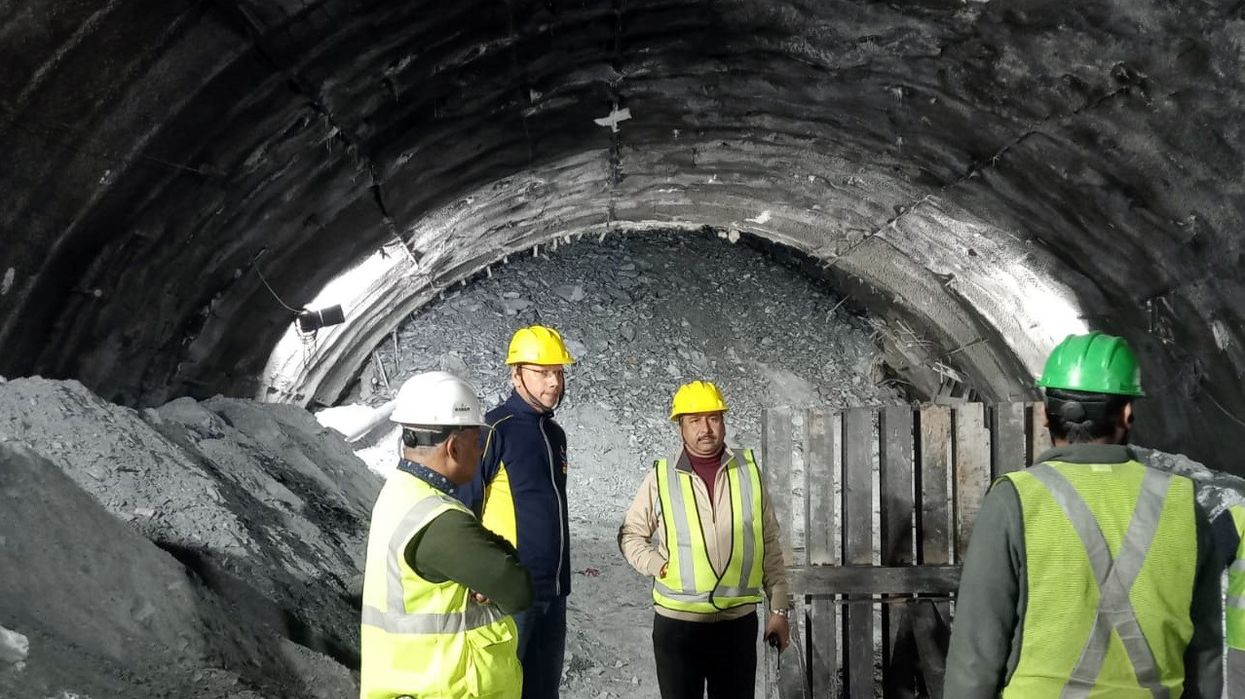Indian rescuers reported on Wednesday (15), that they had sent medicine to the 40 men trapped after the road tunnel they were constructing collapsed, marking the fourth day of frenzied efforts to free them.
Officials said that there was sufficient oxygen reaching the tunnel for the trapped men to survive for five to six days.
However, according to a report in The Guardian, a doctor present at the site reported that several of the men had begun to experience troubling symptoms, including dizziness, fever, and vomiting.
Excavators have been removing debris since Sunday morning from the site in the Himalayan state of Uttarakhand to create an escape tunnel for the workers, all of whom are still alive.
"After consultation with doctors, medicine has been sent to the workers through pipes," police officer Prashant Kumar told AFP from the site. "Contact is being maintained with the workers."
No details were given about the condition of the men or how many of them were sick.
Food and oxygen had also been sent to the trapped workers, he said.
But as rescue teams removed the vast piles of rubble, more fell from the broken roof of the tunnel, and two labourers working to remove the debris were injured overnight, he added.
The pace of drilling was "slow because of natural causes", but efforts were being made on a "war footing", Uttarakhand state police chief Ashok Kumar said in a statement on Wednesday.
The air force on Wednesday flew in a second "drilling machine which will speed up rescue work" after the first one broke down, he added.
Dozens of colleagues of the trapped workers protested outside the tunnel on Wednesday, blaming authorities for "slow rescue work", one of the protesters told AFP.
Photos released by government rescue teams soon after the collapse showed huge piles of rubble blocking the wide tunnel, with twisted metal bars from its roof poking down in front of slabs of concrete.
(With inputs from AFP)




